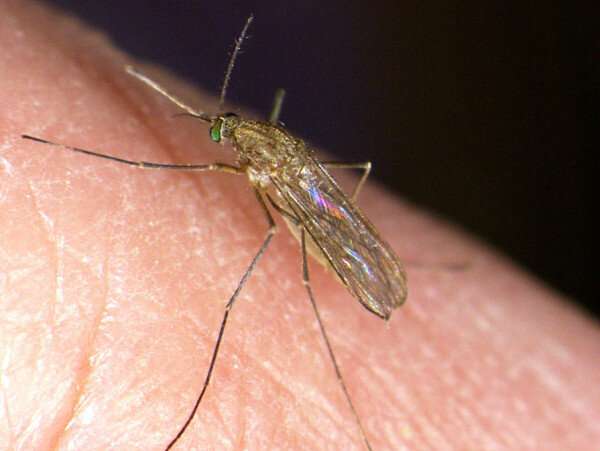#Climate change makes West Nile virus outbreaks ‘plausible’ in UK

“#Climate change makes West Nile virus outbreaks ‘plausible’ in UK”

Climate change will make outbreaks of West Nile virus more likely in the UK within the next 20-30 years, scientists say.
West Nile virus is spread by mosquitoes and has no vaccine. Most people have no symptoms, but it can cause serious neurological disease.
Scientists from the UK Centre for Ecology & Hydrology (UKCEH), Biomathematics and Statistics Scotland (BioSS) and the University of Glasgow developed a new model to determine the risk of a West Nile virus outbreak in the UK.
They found the risk is low for the next two to three decades, but will increase as temperatures rise.
Dr. Steven White, a theoretical ecologist at UKCEH, said: “Knowing if or when a new disease will affect us is vitally important.
“West Nile virus is currently absent in the UK, but we do harbor the Culex pipiens mosquito, which can transmit the disease and potentially lead to spill-over into humans.
“West Nile virus is now endemic in Italy and there have been outbreaks in Germany, so it is moving into more temperate climates.
“Our model shows that the risk will steadily increase and that future outbreaks are plausible in the UK.”
The team’s mathematical model looked at the effects of temperature on the biological processes affecting the Culex pipiens mosquito population in the UK. They were able to capture how these seasonal changes might interact with faster replication of the virus under higher temperatures to drive outbreaks.
Dr. David Ewing from BioSS, formerly a UKCEH Ph.D. student when most of the research was carried out, said: “Our model shows the predicted risk of an outbreak increases substantially if the biting season goes on longer, or if new viral strains are introduced that replicate at a higher rate than the ones already studied.
“Most other approaches are simplified, but we’ve built in complex biological relationships. This model could be adapted to look at other viruses and diseases, or other mosquito or insect species.”
Dr. Ewing says the study shouldn’t be cause for alarm, but to help the UK prepare. “While there’s relatively little immediate danger, we can take steps to prepare for future outbreaks.
This could be as simple as ensuring doctors are aware of the symptoms, testing and who’s most at risk of becoming seriously ill.”
The research was reported in the Journal of the Royal Society Interface.
David A. Ewing et al, A novel approach for predicting risk of vector-borne disease establishment in marginal temperate environments under climate change: West Nile virus in the UK, Journal of The Royal Society Interface (2021). DOI: 10.1098/rsif.2021.0049
Provided by
UK Centre for Ecology & Hydrology
Citation:
Climate change makes West Nile virus outbreaks ‘plausible’ in UK (2021, May 28)
retrieved 29 May 2021
from https://phys.org/news/2021-05-climate-west-nile-virus-outbreaks.html
This document is subject to copyright. Apart from any fair dealing for the purpose of private study or research, no
part may be reproduced without the written permission. The content is provided for information purposes only.
If you liked the article, do not forget to share it with your friends. Follow us on Google News too, click on the star and choose us from your favorites.
For forums sites go to Forum.BuradaBiliyorum.Com
If you want to read more Like this articles, you can visit our Science category.




